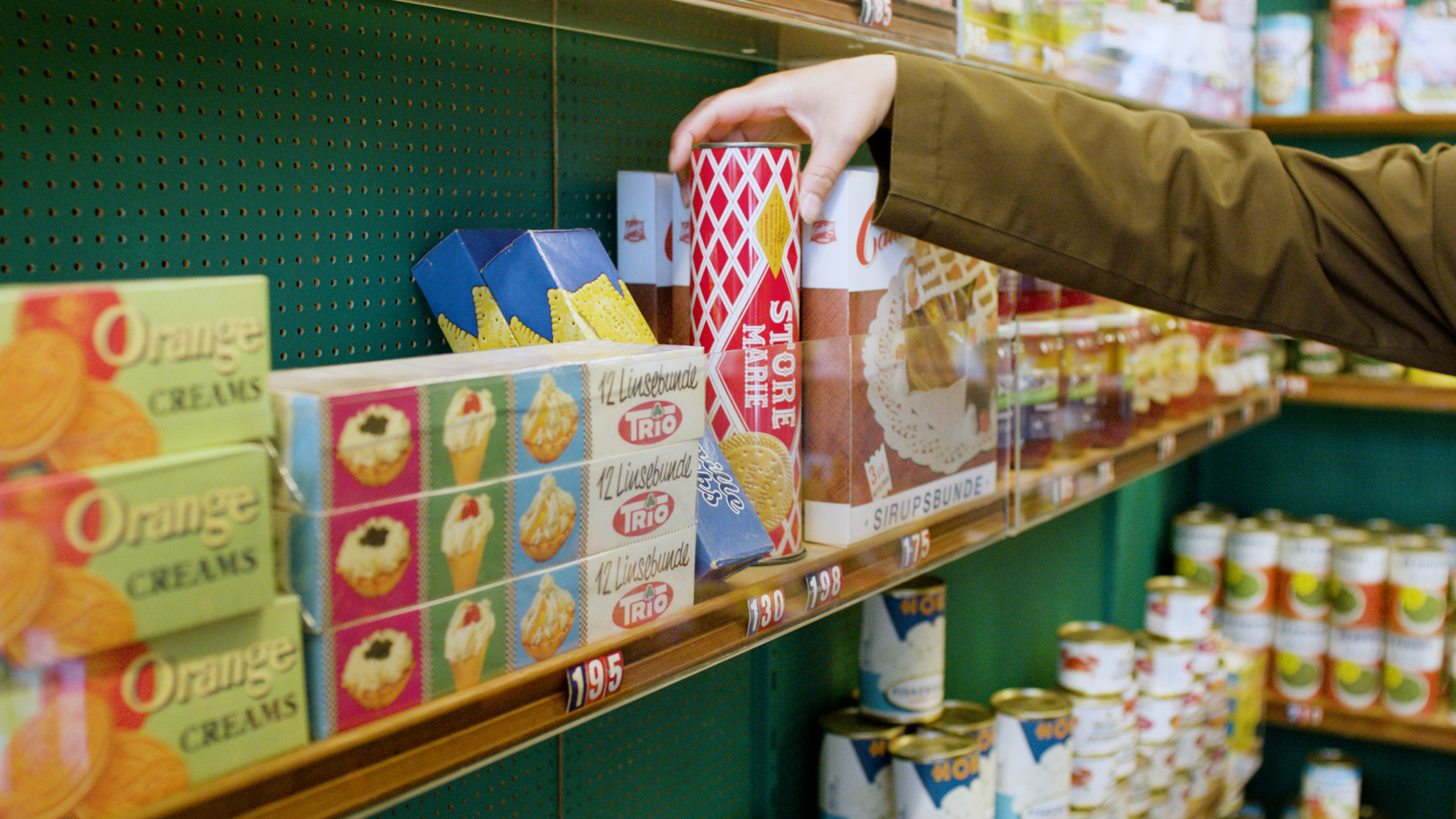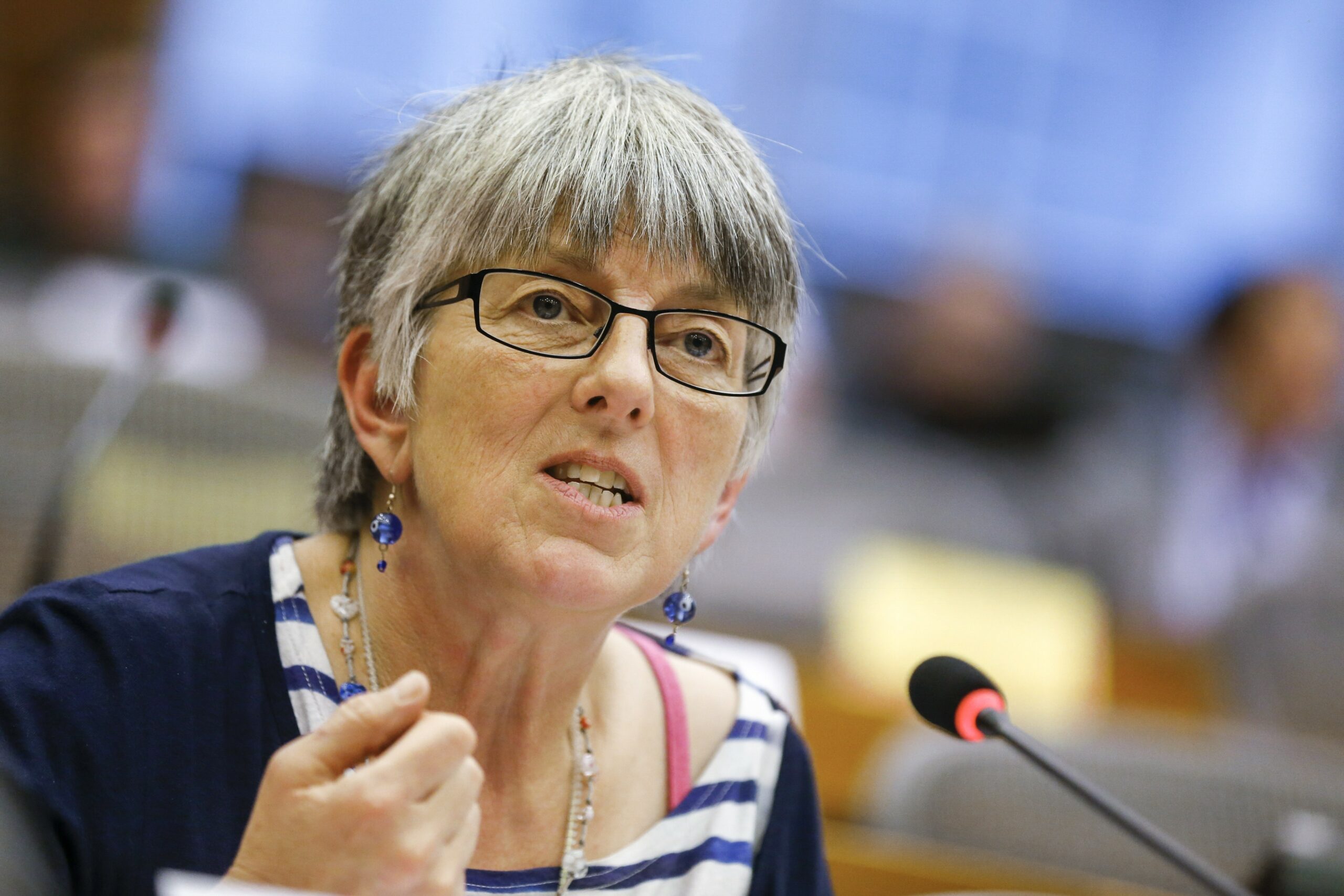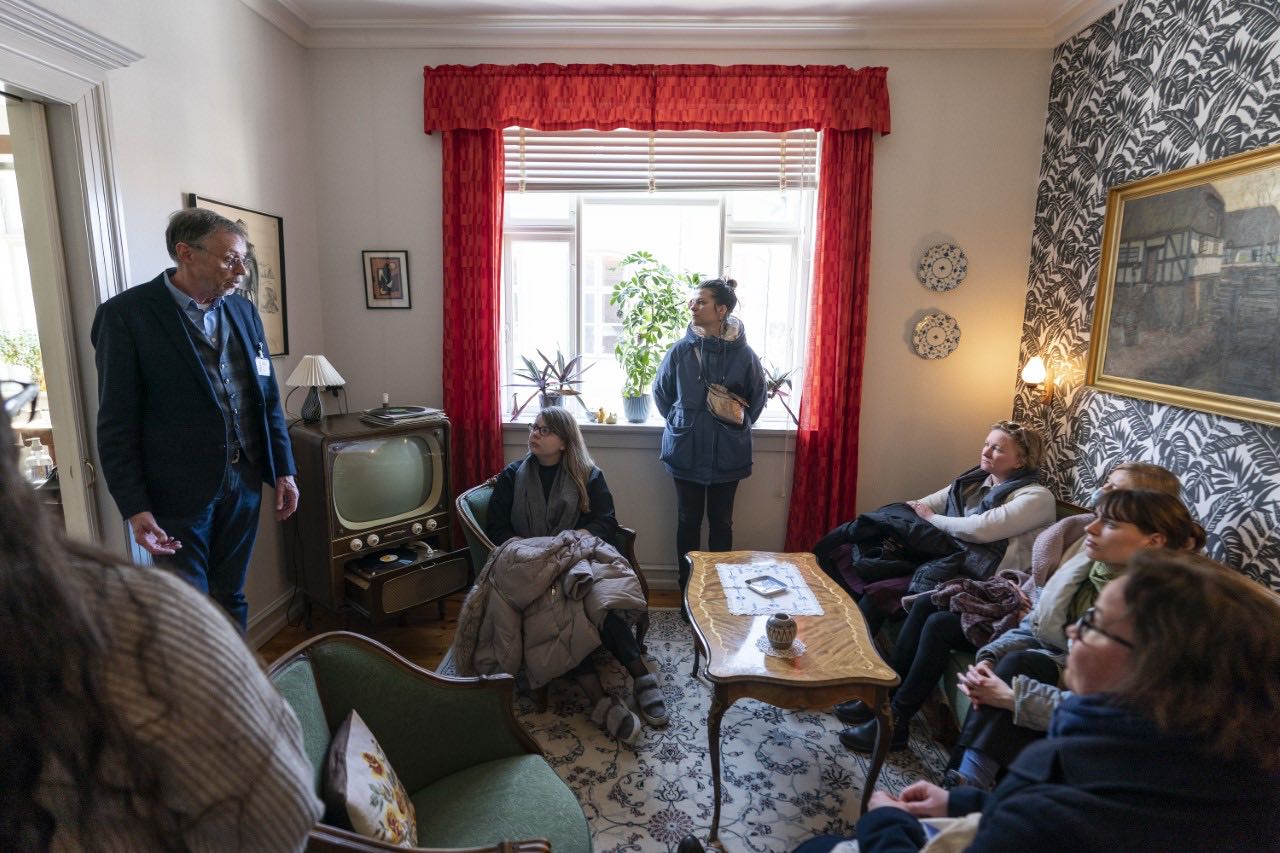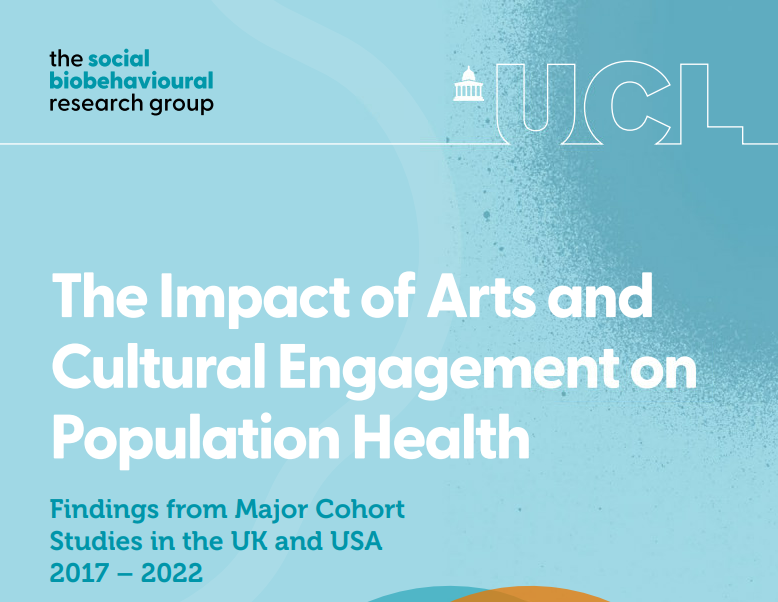We are tuning in on people, who are fighting the disease of Parkinson's in an amazing way, joining a world championship and a community of table tennis players. By promoting the 'World Table Tennis Congress for Health' and the 'Parkinson's World Table Tennis Championship 2023', we are connecting important healing ingredients of sports to the matter very much at our hearts: the Art of Ageing.
The article will set off with words of wisdom from Andrew Greenwood – international ballet master and among other things known for 'Dancing with Parkinson's' as the co-founder of the ‘Dance for Health Foundation’ since 2012. We will be connecting missions of CultureForHealth with missions of Table Tennis, before closing collectively with the beauty of ageing with Parkinson’s, playing table tennis.
The Art of Ageing
Andrew Greenwood was a professional ballet dancer, going to retire from his dancing career taking on the next chapter of his life being an experienced dancer. At this point of time, a friend of his was diagnosed with Parkinson's at the age 37.
“I was at that time engaged as the house ballet master and developing an injury prevention and rehabilitation center for dancers. Due to his disappointment with the options in physical training as a Parkinson’s patient, he asked me to accompany him into the studio. We started applying dance techniques and exploring how dance could enhance his physical and mental state. After discovering the amazing effects and possibilities of these dance sessions, we decided that we needed to move into further investigation and study."
- Andrew Greenwood
Link to website
Link to Switch2Move
This became the start of Andrew Greenwood's experience with 'Dancing with Parkinson's':
"So, I organised a studio in the Opera House. […] If you can take these wonderful people out of this kind of clinical environment, clinical area, and put them in a creative place, you can get a lot of things going on. […] What dance can do is, it can stimulate us, it can stimulate our imagination, it can stimulate our memory."
- Andrew Greenwood
TEDxTilburg. Link to YouTube
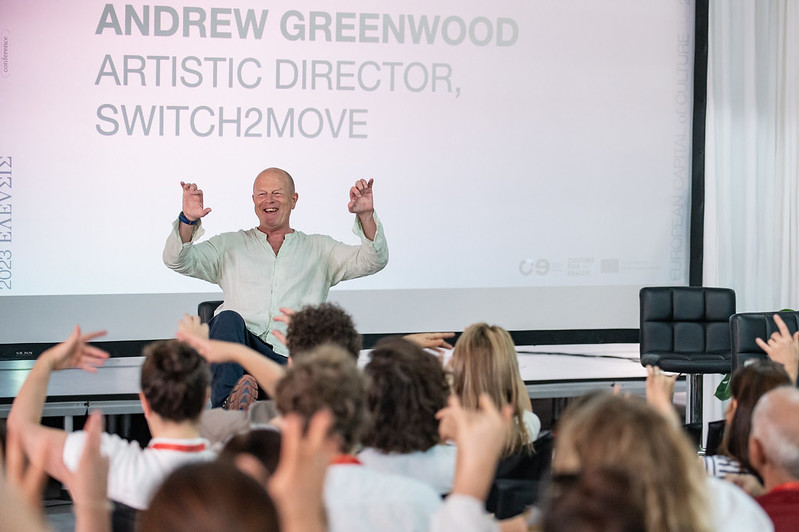
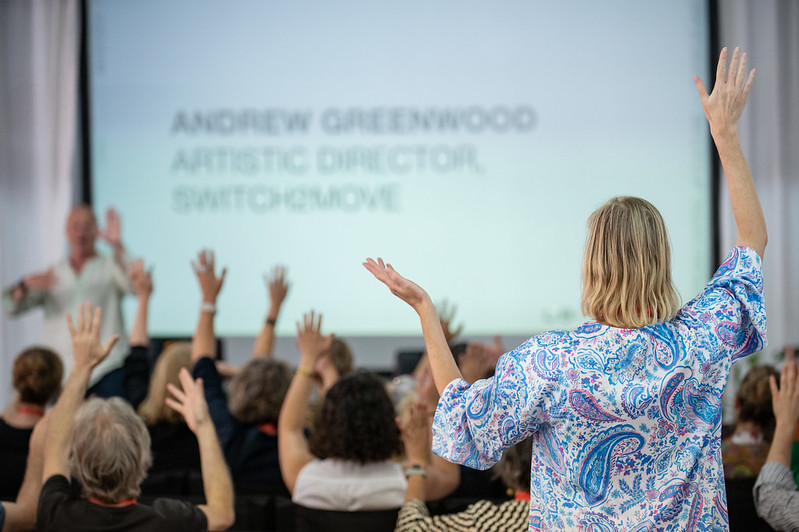
The importance of participation
All forms of exercise are beneficial. Though, the movement and identity of being ‘a dancer’ or ‘a table tennis player’ adds both cognitive and social dimensions to the rewards of embarking on something new and at the beginning maybe even challenging.
As in this case, Parkinson's disease is a brain disorder causing unintended or uncontrollable movements, such as shaking, stiffness, and difficulty with balance and coordination, making it more difficult to take on new adventures.
"While all forms of exercise are beneficial, the thing that makes ping-pong unique is that it incorporates a focus on balance, hand-eye coordination, and the rhythm or pace of reciprocal play. [...] So it really hits the trifecta of physical, cognitive and social activities."
- Elana Clar, neurologist at Hackensack University Medical Center in New Jersey
Link to website
"Unbelievable also. They cannot walk, but they can play table tennis." - Floor Schiffers, Player, Netherlands
Link to YouTube
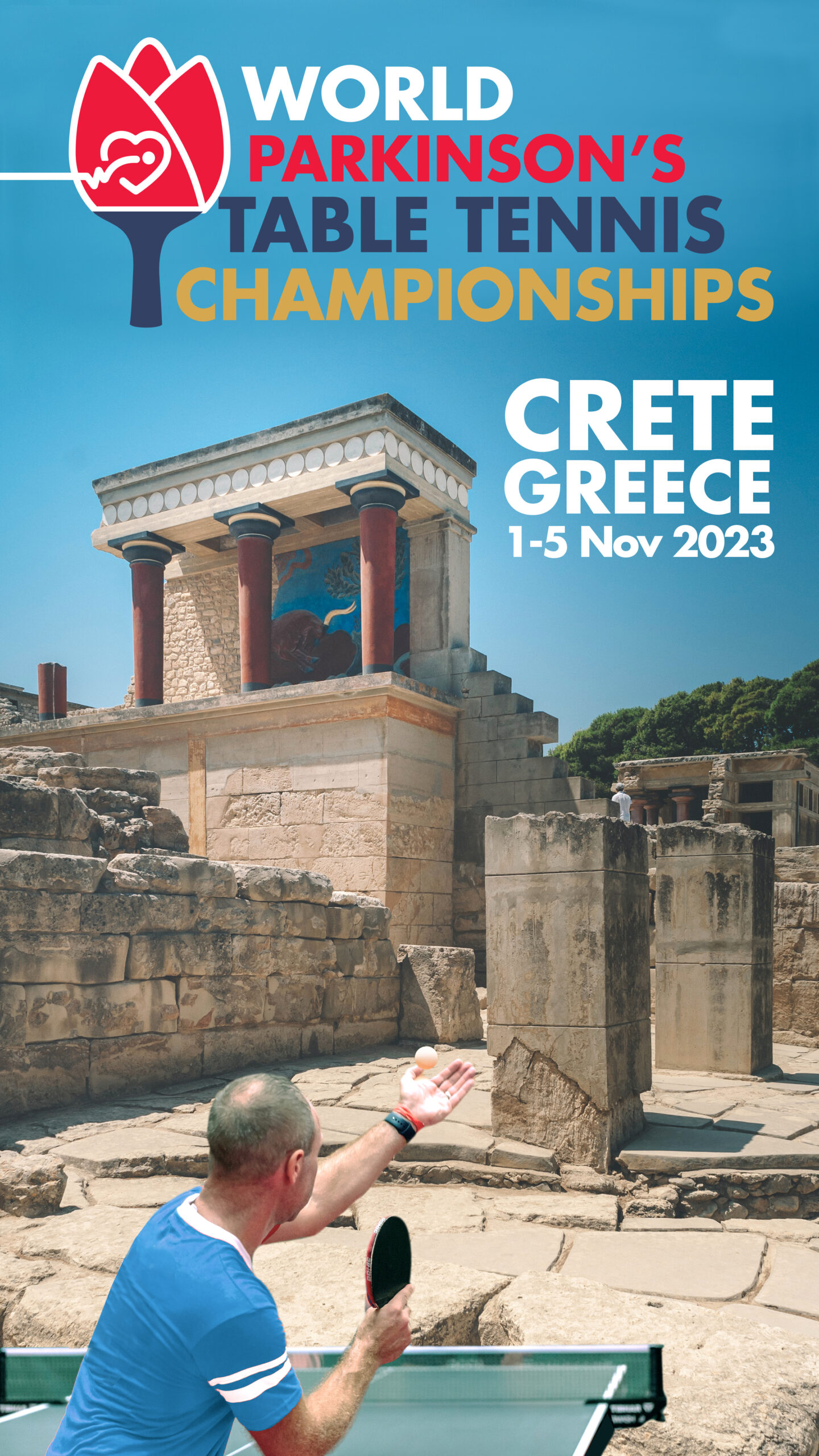
World Table Tennis Congress for Health
After a successful event in 2021, for the first time this year, the World Parkinson's Table Tennis Championships will return as part of the World Table Tennis Congress for Health Festival 2023 (WTT4H Festival).
Distinct Entities, such as Universities and International Health Associations, professionals, and players with cognitive disorders, will discuss and tell about their experiences and the positive impact which table tennis brings to practice.
The objectives of this event are to present table tennis as a part of a sustainable healthy lifestyle, and to use table tennis events to increase the awareness of possibilities for people with a disease.
Link to website
Community of Table Tennis
"It's not just about competition, really, it's about making connections."
- Margie Alley, Player, USA
The ITTF Foundation will continue to ensure that athletes with Parkinson’s get access to high-quality competition and promote the sport of table tennis to the widest possible audience.
"Winning is secondary. Participating and table tennis is the way."
- Thomas Weikert, ITTF and ITTF Foundation President
Both quotes: Link to YouTube
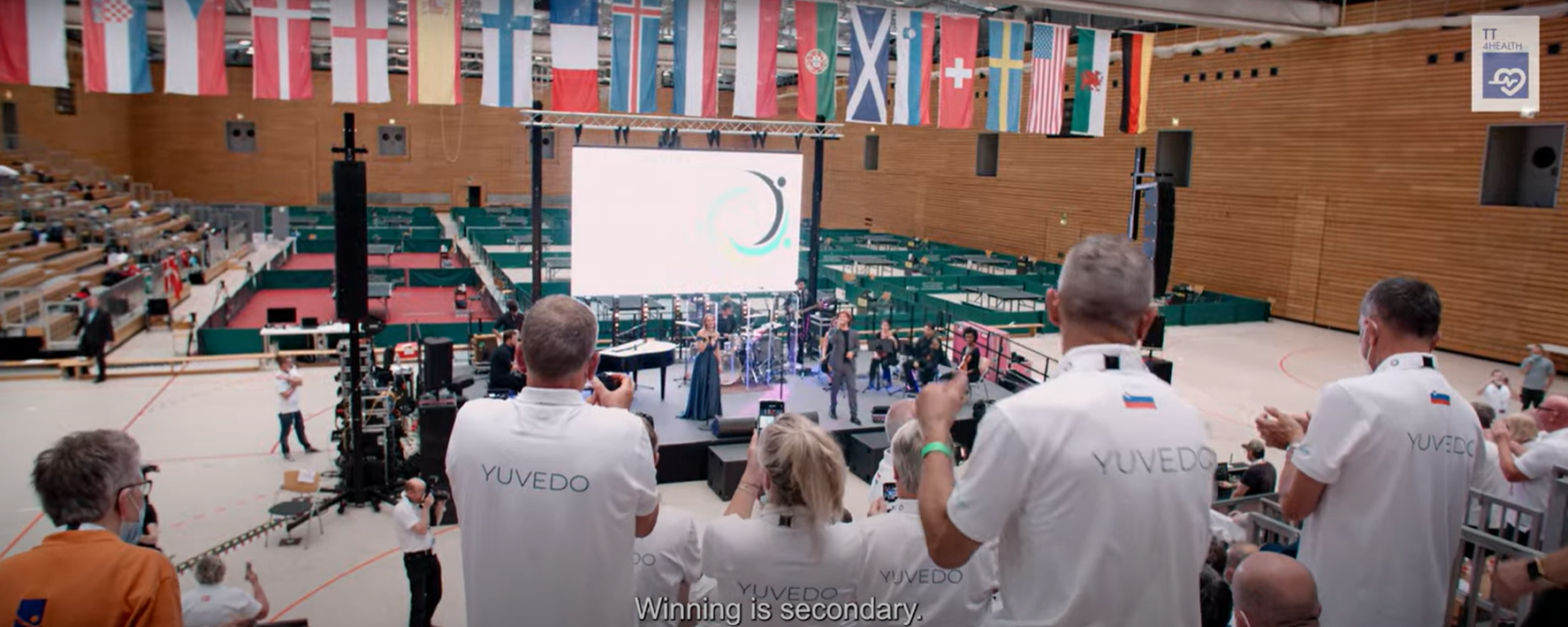
ITTF Parkinson's World Table Tennis Championship
From November 1st to November 5th, 2023, the Heraklion city in Crete will be setting the stage for excited athletes, supporters, and spectators with big expectations for the event, when they come together to capture these unique and inspiring moments.
The organisers are aiming for promotinging inclusivity and encouraging participation, making sure that the championships feature various categories of table tennis tailored to different skill levels and age groups. This ensures that players of all backgrounds and abilities have the opportunity to compete and shine when athletes from more than 50 countries compete during this championship.
Link to website
"I like the community with all the people together, that you are not alone, and I can see how sports and movement inspire people."
- Karin Jacqueline Maria Lumeij, Netherlands, Player
Link to YouTube
Population Ageing
Over the last decades we have seen a shift in the balance of a country's population towards older ages, also known as ‘population ageing’. In the beginning, this movement occured in high-income countries, but now it is low- and middle-income countries that are experiencing the greatest change. By 2050, two-thirds of the world’s population over 60 will live in low- and middle-income countries.
Ageing results from the impact of a wide variety of molecular and cellular damage over time. This leads to a gradual decrease in physical and mental capacity, and a growing risk of disease. Beyond the biological changes, ageing is also associated with other life transitions such as retirement, relocation to more appropriate housing and the bereavement of friends and partners.
Link to website
"I stopped playing guitar publicly, because I could not play anymore as a patient. After playing 5 to 6 months of table tennis, I have reversed my symptoms. If it happened to me, it may happen to some other people as well. That was the major motivation."
- Nenad Bach, Ping Pong Parkinson, Chair of PWTTC 2019, Player, USA
Link to YouTube
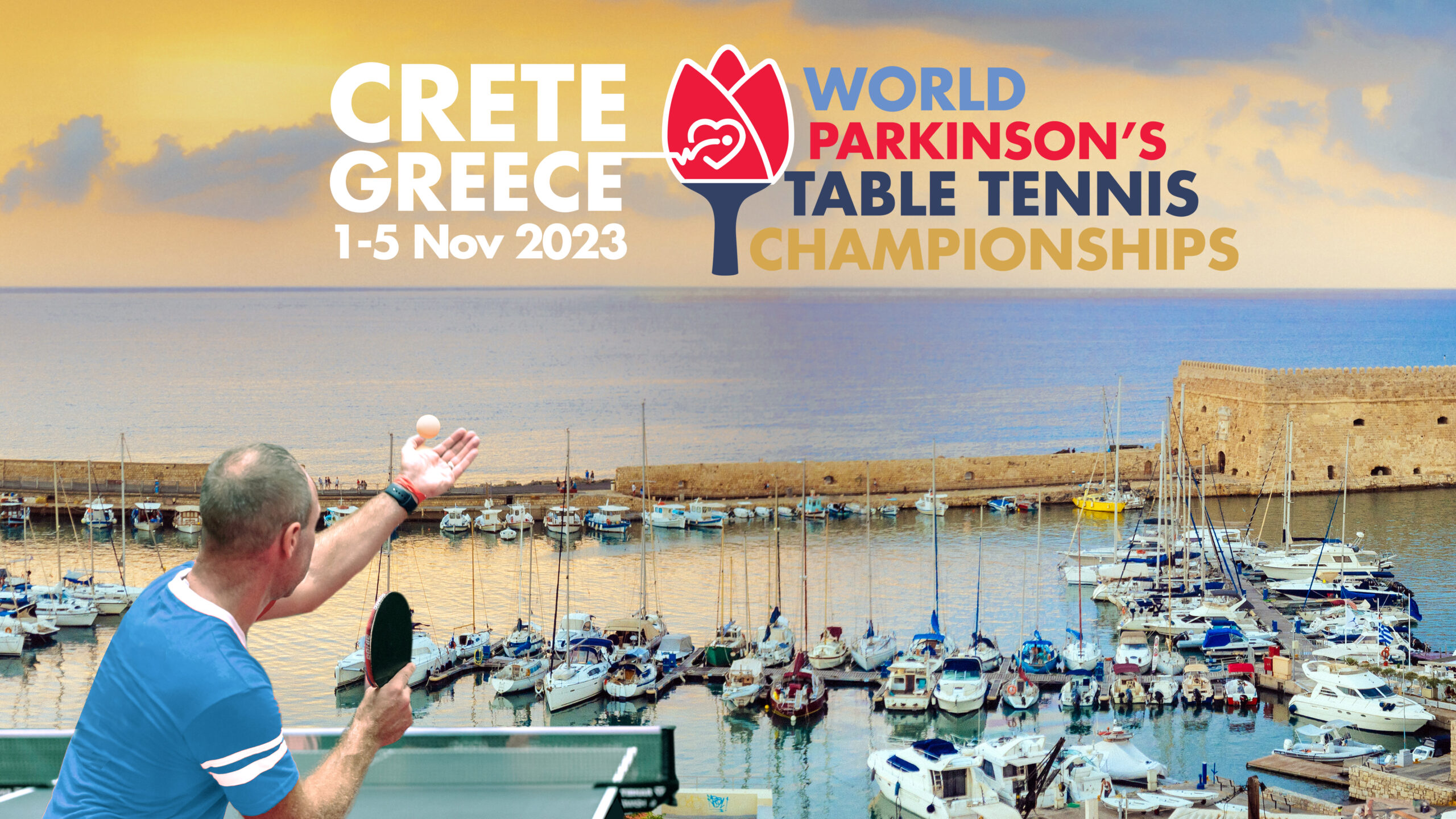
Symptoms of Parkinson's
The symptoms of Parkinson's usually begin gradually and worsen over time. As the disease progresses, people may have difficulty walking and talking. They may also have mental and behavioral changes, sleep problems, depression, memory difficulties, and fatigue.
The most prominent signs and symptoms of Parkinson’s disease occur when nerve cells in the basal ganglia, an area of the brain that controls movement, become impaired and/or die.
When the neurons die or become impaired, they produce less dopamine, which causes the movement problems associated with the disease. Scientists still do not know what causes the neurons to die.
Some people with Parkinson’s may experience changes in their cognitive function, including problems with memory, attention, and the ability to plan and accomplish tasks. Stress, depression, and some medications may also contribute to these changes in cognition.
The heavy burden of Parkinson’s is among other things the heavy burden of getting sick and not knowing what to do about it.
Link to website
“This disease is such a heavy burden. It is a nasty and bad disease. And we are fighting like hell against it. And table tennis is an integral part of most of our lifes."
- Jens Greve, Yuvedo Foundation, Organiser PWTTC 2021, Player, Germany
You Tube video: Link to YouTube
The importance of a rewarded mind
Some connections and experiences are creating chemical reactions in our brains, chemical messengers known as hormones.
For instance, dopamine is part of our reward system, rewarding us when we’re doing the things we need to do to survive — eat, drink, compete to survive and reproduce. If we have the right balance of dopamine, we feel happy, motivated, alert, and focused. Dopamine is a critical modulator of both learning and motivation.
Link to website
"When you work with people with Parkinson's or dementia, of course you have empathy, but the whole idea is to challenge them, to offer them the opportunity to do something. I am still an international ballet master, and what I find really important is that I can use this craft to stimulate people to be more implicit, to try things that they don't normally do, for instance standing on one leg."
- Andrew Greenwood
TEDxGorinchem, Link to YouTube
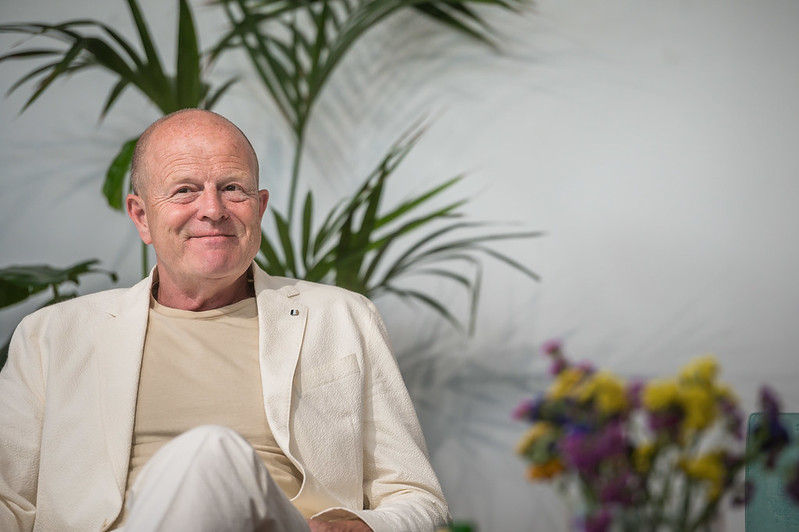
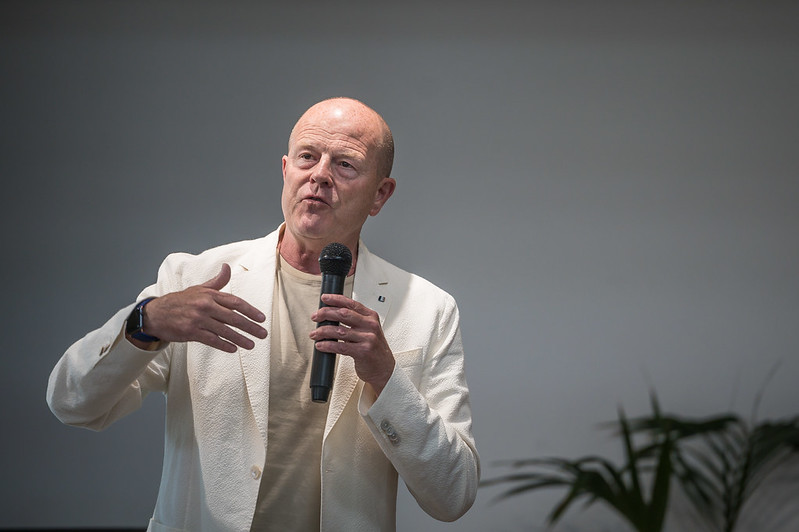
Hormonal reactions connected to Parkinson's
If we have a low dopamine level, we might feel tired, unmotivated, and unhappy. We may also have memory loss, mood swings, sleep problems, and concentration problems.
Among other things, by activating our bodies and minds in implicit ways like dancing and table tennis, we are also boosting positive chemicals and hormones modulating both motivation and learning - maybe even performances in new ways.
“This amazing way, table tennis allows them to perform in a way which is incredible to watch. We have seen people, who can hardly walk, playing amazing table tennis. That must just lift them so much."
- Richard Baynes, Dina's Husbond
Link to YouTube
We all want the same: to trigger the human instinct of moving
Social Prescribing, Arts on Prescription, Table Tennis for Health - by the end we all want the same: to trigger the human instinct of moving, surviving, living. Not only adding more years to ones lifes, but also adding more life to ones years, adresseing the matter very much at our hearts: the Art of Ageing - for instance by playing table tennis.
"Taking wonderful people with Parkinson's – we don't use the word Parkinson's, we leave that outside the door, we call them dancers – and we play infinite games together. I am not going to cure anybody, but I am trying to enhance their quality of life."
- Andrew Greenwood
TEDxGorinchem, Link to YouTube
If you want to know more about Table Tennis for Health, you can find it here
And we know for sure: art, culture and creativity can be an excellent way to activate our bodies and minds in an implicit, instinctual way.
What kind of community, culture or art will help you or your ageing relations to trigger the human instinct of moving? You can find more information by exploring this website: theoretical, political, practical, inspirational.
#CultureForHealth
More Inspiration
